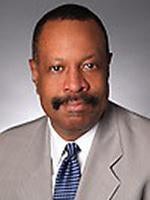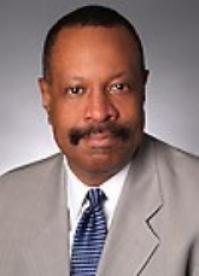Background
As the United States becomes more of a “melting pot,” the extent of an insurer’s duty to meaningfully communicate with non-English speaking insureds is seemingly and increasingly going to be called in to question. Thus, important information is often needed from an insured in order for an insurer to reach a coverage decision on their claim. Therefore, the question becomes: what is “reasonable and meaningful communication” when a language barrier exists, i.e., to what lengths must an insurer go to properly communicate with its insured?
On the other hand, when an insured who neither speaks nor reads English executes an insurance form, e.g., an application for insurance, a non-waiver agreement or a proof of loss; to what extent can an insurer rely on the insured’s attestation under such circumstances? Two recent decisions provide insight on how courts might view an insurer’s rights and obligations when these types of issues arise.
Young Sook Pak and In Suk Pak t/d/b/a Pak’s Fook Market and Big Mount Laundromat and Joe’s Grocery Store, v. Alea London Ltd. and Sirius International Ins. Corp., 2009 U.S. Dist. LEXIS 65640 (M.D. Pa. July 30, 2009)
Young Sook Pak and In Suk Pak are husband and wife, and operate various businesses including Joe's Grocery Store in York, Pennsylvania. On April 8, 2006, the north wall of Joe's Grocery Store partially collapsed. Prior to its collapse, the wall was covered in vines and other vegetation. The coverage dispute in this case was whether deterioration or decay was visible on the wall prior to its collapse. The Paks state that no deterioration was evident to them prior to the date of loss, and state that they took preventative steps to maintain the entire building.
After the wall collapsed, the Paks filed a claim with All Risks, who assigned the case to an adjuster, Robert Faith of Johns Eastern Company, to conduct an investigation. Faith contacted the Paks but determined that it was difficult to communicate with them because they didn’t speak English very well. Allegedly, thereafter, no one on behalf of All Risk ever attempted to get a Korean interpreter to speak to the Paks about the incident, and all remaining conversations between the defendants’ representatives and the Paks were in English.
Faith couldn’t remember what he talked about with the Paks during his initial visit to the site, and he couldn’t recall whether he asked them any questions about the maintenance that they performed on the wall or the property in general. However, because he couldn’t determine the cause of the collapse, he hired Kelly Huff, a professional engineer with SEA Limited. Huff visited the loss site and issued an opinion that the wall collapsed because of a lack of maintenance and continuous water seepage, which caused the deterioration of the wood framing and the brick and mortar joints. The parties disagree whether Huff spoke to the Paks about the condition of the wall prior to its collapse.
Based on Huff’s report, Faith recommended to All Risks that the claim be denied; and on May 22, 2006, Faith sent a letter to the Paks officially denying the claim. The Paks asserted that the loss should be covered because the decay leading to the collapse was hidden from view, and it was not known to them at the time of the collapse. Accordingly, they filed suit alleging breach of contract and bad faith.
The defendants filed a motion for summary judgment contending that even if the plaintiffs survive summary judgment on their breach of contract claim, they have presented insufficient evidence to sustain their bad faith claim. Specifically, defendants argue that plaintiffs can’t show by clear and convincing evidence that the defendants lacked a reasonable basis for their denying the claim.
However, the plaintiffs argued that there were several genuine issues of material fact for trial. Specifically, they argued that (1) defendants conducted an investigation without consideration of the coverage of the insurance policy; (2) they failed to conduct a meaningful investigation regarding whether decay was visible to plaintiffs; (3) they made no effort to meaningfully communicate with plaintiffs; and (4) defendants blindly relied on a single expert witness.
The court in this case, while not reaching a conclusion that the insurer acted in bad faith, did conclude that there was sufficient evidence for a jury to decide the question of whether the insurer failed to conduct a meaningful investigation, i.e., meaningfully communicate with the insureds regarding whether the decay of the collapsed wall was visible to the Paks prior to the collapse. Accordingly, the court denied the defendants' motion for summary judgment.
Lopez v. Farmers Texas County Mut. Ins. Co., 2007 WL 703496 (Tex. App., Texarkana 2007)
In this case, the Texarkana Court of Appeals addressed the issue of Mr. Lopez, a Farmers’ insured who neither spoke nor read English, but who signed four separate uninsured motorist coverage waivers, all of which were clearly stated in English. After an accident, the insured applied for UM/UIM coverage and was denied. Lopez sued Farmers for breach of contract and extra-contractual damages, arguing that the waiver that he signed was ineffective because he did not understand the waivers. The insured relied upon Uniguard Sec. Ins. Co. v. Schafer, 572 S.W.2d 303 (Tex. 1978), for the proposition that an insured must have some knowledge of what he is waiving or rejecting. Farmers moved for and was granted summary judgment based on the four waivers that were executed and Mr. Lopez appealed.
On appeal, Mr. Lopez conceded that the waivers were clear, but complained that he did not speak or understand the English language, and that the insurer and/or its representatives had allegedly failed to explain the waivers to him. Lopez further argued that, in accordance with the court’s ruling in Uniguard v. Schafer, it was the insurer’s burden to demonstrate that an insured knew he or she was rejecting UM coverage.
However, the appellate court disagreed and held that it would not place a duty on insurers to translate or explain waivers. Further, the court rejected the proposition that Schaefer imposed a burden on the insurer to show that the insured actually understood the waiver. Instead, the court interpreted Schaefer to mean that “[a] waiver [need only] be sufficiently explicit so [that] it objectively communicates its effect as waiving or rejecting the coverage in question.”
Accordingly, the court refused to recognize a duty to translate the form document into a language the insured would understand, or to show that an otherwise explicit form was more fully explained to the insured before it was executed. Instead, the Texarkana court held that the waiver must only be sufficiently explicit to objectively communicate its effect as a waiver or rejection of the coverage in question. Accordingly, the Texarkana Court of Appeals affirmed the trial court’s decision and concluded that the insured’s multiple signing of waivers was sufficient to create a showing that the insured had waived his UM/UIM coverage.
Conclusion
There are very few cases that have clearly and definitively addressed an insurer’s rights and obligations concerning their communication with non-English speaking insureds. The cases discussed above, while not widely authoritative, offer some degree of insight into how courts may view these issues as more and more suits of this type are filed.



 i
i


